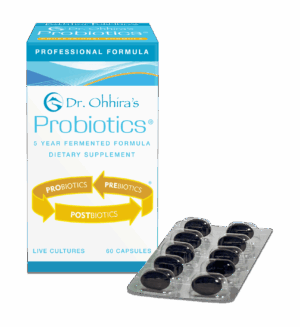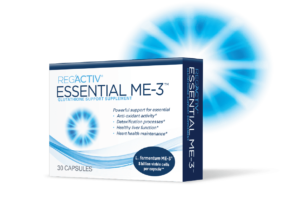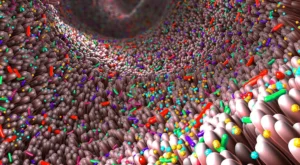The burden of gastrointestinal problems in the United States has reached near epidemic levels. A study published in 2012 reported that 1 out of every 5 visits to a doctor (20%) are for gastrointestinal complaints.i Results from a study titled the National GI Survey, published in the American Journal of Gastroenterology (2018), reported that 61% of the 71,000 Americans surveyed reported having 1 or more GI symptoms in the previous week.ii
The incidence of childhood neuropsychiatric disorders such as ADHD and autism have also continued to rise at alarming rates during the past several decades. For example, data from the National Health Interview Survey reported that in 1997-1998, 6.1% of US children were diagnosed with ADHD. In 2015-2016, the incidence of ADHD had increased to 10.2%.iii
Currently, the CDC estimates that about 1 in 36 children are currently diagnosed with autism spectrum disorder.iv
Could there be a link between the increased incidence of gastrointestinal problems and the escalating rates of ADHD and autism? Also, could a healthier diet with higher amounts of dietary fiber and polyphenols improve conditions in the microbiome ecosystem, which could result in reducing the risk of developing disorders such as ADHD and autism, and could directly ingesting a range of postbiotic metabolites provide similar beneficial effects?
For the past several years I have been educating people about the association between gut problems and brain problems. It is now understood that bacterial imbalance in the gut results in damage to the intestinal barrier. This allows harmful substances to enter circulation and reach the brain.v In a 2023 study, it was reported that adolescents with major depressive disorder (MDD) have both damage to their intestinal barrier and damage to their blood-brain barrier.vi This is the first direct evidence in humans suggesting that damage to the intestinal barrier leads to damage to the blood-brain barrier, which allows harmful substances into the brain.
For decades, scientists and physicians have been looking for “what’s gone wrong,” in the brain of kids diagnosed with autism or ADHD. Research is revealing that there is an association between conditions and poor gut health. For example, in one review 43% of children with autistic spectrum disorder (ASD) were found to have damage to their intestinal barrier compared to placebo controls.vii An increasing number of studies are also being published that link altered gut microbiome and gastrointestinal symptoms with ADHD.viii
Dr. Ohhira’s Probiotics has developed a world-wide reputation for its ability to rapidly create improvements in the intestinal microbiome ecosystem of people with dysbiosis. Recent research reported that Dr. Ohhira’s Probiotics contain over 500 postbiotic metabolites. Dr. Ohhira’s is a complete microbiome system that contains probiotic bacteria, prebiotic foods and postbiotic metabolites. However, it is the postbiotic metabolites in Dr. Ohhira’s Probiotics that immediately begin to create change by reducing irritation in the gut lining, controlling the growth of harmful bacteria, maintain the growth of healthy new cells and assist in the reestablishing of healthy gut-brain communication. This is “The Dr. Ohhira’s Advantage!” Dr. Ohhira’s Probiotics is the best product to rapidly improve conditions in the microbiome ecosystem. A good gut helps create a great mind!
-
 Dr. Ohhira’s Probiotics®$13.95 – $89.95Price range: $13.95 through $89.95
Dr. Ohhira’s Probiotics®$13.95 – $89.95Price range: $13.95 through $89.95 -
 Dr. Ohhira’s® Probiotics Professional Formula$39.95 – $129.65Price range: $39.95 through $129.65
Dr. Ohhira’s® Probiotics Professional Formula$39.95 – $129.65Price range: $39.95 through $129.65 -
 Reg´Activ® Essential ME-3$39.95
Reg´Activ® Essential ME-3$39.95




